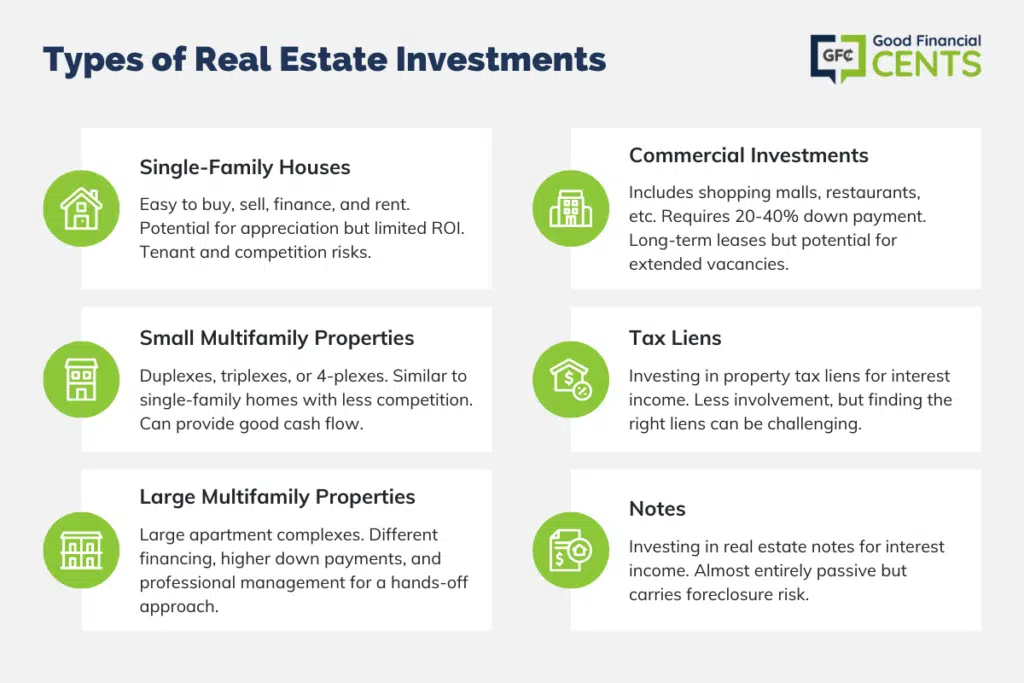All Categories
Featured
Table of Contents
To make certain that accredited financiers will certainly have the ability to create a comprehensive and diverse profile, we picked platforms that could satisfy each liquidity demand from short-term to lasting holdings. There are numerous investment possibilities approved capitalists can check out. Some are riskier than others, and it would depend on your risk cravings whether you would certainly go for it or not.

A realty mutual fund is among the several ways you can invest in property. Realty financial investment options like direct individual investment, realty restricted partnerships (LPs), realty investment counts on (REITs), and actual estate mutual fund have their benefits and drawbacks. Of all the choices, a property investment fund is commonly the most effective one for those simply beginning their genuine estate investing trip.
Image source: Getty Images. An investment fund is an entity formed to merge investor money and collectively acquisition protections such as stocks, bonds, or actual estate. An actual estate financial investment fund is a consolidated resource of capital utilized to make genuine estate financial investments. Genuine estate mutual fund share some similarities with real estate investment company (REITs); they're both pooled resources of resources used to invest in realty.

These entities spend cash pooled from capitalists into a varied portfolio of real estate possibilities, including REITs, real-estate-related firms, and property properties. Many property common funds are open to all financiers as long as they meet the minimal financial investment demand. Capitalists can buy most common funds via a monetary advisor, though some are offered through online brokerages.
How does Accredited Investor Commercial Real Estate Deals work for high-net-worth individuals?
They track a hidden index enabling capitalists to gain market-matching returns (minus costs). Realty ETFs are open to the public and trade on significant securities market exchanges. Property exclusive equity funds: Exclusive equity funds are actively managed and target institutional financiers and high-net-worth clients, so most exclusive equity property funds are only offered to institutional and recognized investors, not the basic investing public.
A couple of remarkable ones are: Diversification: Many genuine estate financial investment funds use financiers wide exposure to the genuine estate sector. Lower preliminary investment threshold: The majority of real estate funds have reasonably low initial investment limits (normally much less than $10,000 for a shared fund and not much even more than $100 for many genuine estate ETFs).
Passive investing: Property enables investors to produce passive income as tenants pay rent, but being a property owner requires active management. On the various other hand, property funds are a lot extra hands-off financial investments since others deal with the energetic management of the residential or commercial properties. Genuine estate capitalists have numerous superb fund alternatives offered to them these days.
This realty mutual fund has a minimal investment of $3,000 and charges a low expense proportion of 0.13%. The fund purchases a broad array of REITs, supplying investors exposure to the whole property market. Lead also offers an ETF version, Vanguard Real Estate ETF (-0.03%), which gives investors the exact same broad REIT direct exposure and low expense ratio.
It additionally has a reduced expense proportion (0.09%) and share cost (around $40 in mid-2024).
How do I apply for Accredited Investor Real Estate Platforms?
These funds likewise enable financiers to passively participate in actual estate investments, freeing up their time for other things. The Motley Fool has positions in and advises Vanguard Real Estate ETF.
Several choices that accommodate varying risk profiles and spending choices are readily available on the very best investment systems for accredited financiers (Accredited Investor Rental Property Investments). It's vital to comprehend which are best for certified investors in order to make the most of special deals, branch out profiles, improve returns, see new fads, and get expert advice. If you are wanting to spend as a deportee or high-net-worth individual, which is what I specialize in, you can email me () or WhatsApp (+44-7393-450-837)
Inevitably, the best platforms depend on where you are based, your risk profile and what you want to attain. Individuals or organizations that specific monetary needs from regulators are what's thought about accredited financiers.

We are a modern technology company that utilizes software application and experience to bring loan providers and debtors together. By using this web site, you accept our use of cookies, our Terms of Use and our Privacy Policy. We utilize cookies to supply you with a terrific experience and to help our web site run effectively.
What is the difference between Accredited Investor Real Estate Crowdfunding and other investments?
An accredited capitalist is a person or entity that is permitted to purchase safeties that are not signed up with the Securities and Exchange Commission (SEC). To be an accredited investor, a private or entity should fulfill specific earnings and web worth standards. It takes money to make money, and approved capitalists have extra possibilities to do so than non-accredited capitalists.
The needs of who can and that can not be an approved investorand can take component in these opportunitiesare figured out by the SEC. There is a common misconception that a "procedure" exists for a private to become a certified capitalist.
The burden of proving an individual is a certified investor drops on the financial investment car instead than the financier. Pros of being a recognized financier include accessibility to distinct and restricted investments, high returns, and enhanced diversity. Cons of being a certified capitalist include high risk, high minimum investment amounts, high costs, and illiquidity of the financial investments.
What is the difference between Real Estate Syndication For Accredited Investors and other investments?
Policy 501 of Law D of the Securities Act of 1933 (Reg. D) offers the definition for an approved investor. Simply put, the SEC defines a certified financier through the confines of income and total assets in 2 means: A natural individual with revenue going beyond $200,000 in each of both latest years or joint income with a spouse going beyond $300,000 for those years and a reasonable expectation of the very same revenue degree in the current year.
Approximately 14.8% of American Houses qualified as Accredited Investors, and those homes regulated roughly $109.5 trillion in wide range in 2023. Gauged by the SCF, that was around 78.7% of all private wealth in America. Rule 501 additionally has arrangements for companies, collaborations, charitable companies, and counts on in addition to company directors, equity proprietors, and economic institutions.
Individuals who base their certifications on yearly earnings will likely need to send income tax return, W-2 kinds, and various other documents that suggest earnings. People might additionally think about letters from testimonials by CPAs, tax obligation lawyers, investment brokers, or experts. Accredited investor designations likewise exist in other nations and have similar requirements.
Individuals that base their credentials on annual earnings will likely require to submit tax returns, W-2 kinds, and other documents that show salaries. Certified investor classifications likewise exist in other nations and have similar demands.
People who base their qualifications on yearly income will likely need to submit tax returns, W-2 forms, and other records that indicate wages. Recognized financier designations also exist in other nations and have similar requirements.
Latest Posts
List Of Properties With Delinquent Taxes
What Is A Delinquent Tax Sale
How Do Tax Foreclosure Sales Work